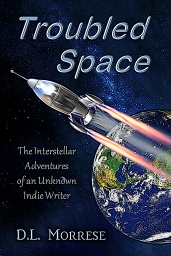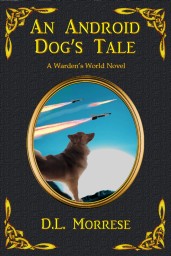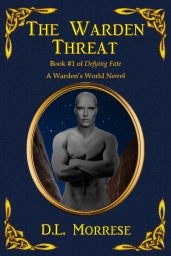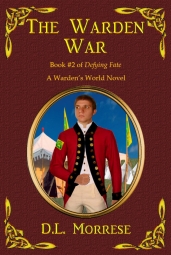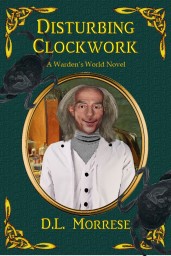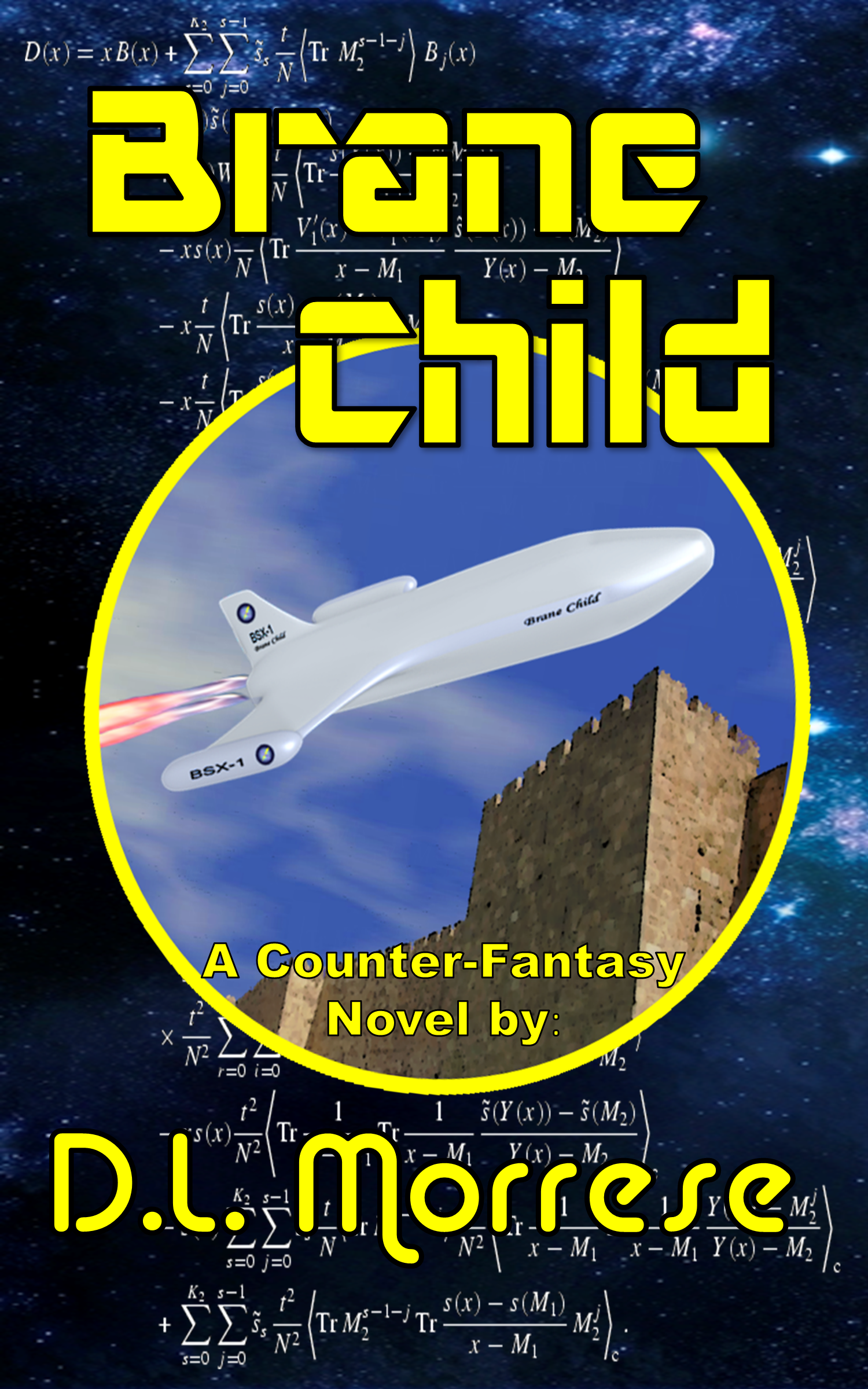Blog Archives
What is Counter-Fantasy?
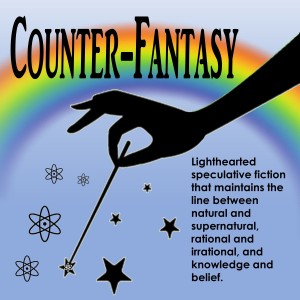 Counter-Fantasy: noun – a subgenre of science fiction
Counter-Fantasy: noun – a subgenre of science fiction
There are, as I see it, two major subdivisions of speculative fiction.
There’s science fiction, in which the setting and all (or at least most) of the props and trappings have a basis (albeit sometimes implausibly) in known science. Within the context of the story, the aliens, whiz-bang technology, and special effects are presumed to be scientifically explicable. We may not know how to create warp drive or gravity plates, for example, but if the people of a science-fictional universe figured it out, the story implies that they did so using scientific principles and (importantly) without violating any known laws of physics.
And then, there’s fantasy, in which imagination has free rein to disregard physics, or any other scientific constraint if the author so chooses. In fantasy, mythological creatures, mystical forces, and magic dominate the setting, and their scientific inexplicability (or impossibility) is no detriment to their existence within the story.
This is, of course, a purely academic distinction. It defines different genres of fiction, but individual stories are often a mix of several. Fantasy, romance, sci-fi, adventure, comedy, and mystery can all coexist happily in a single and entirely enjoyable story. Star Wars is one well-known example that mixes both science fiction and fantasy. The setting, with its space ships and blasters, looks like science fiction, but it’s the mystical Force that drives the story.* If you want to attach a genre label to it, ‘science fantasy’ works about as well as any.
But, getting back to reality…I mean fantasy, there is a subgenre sometimes referred to as ‘magic realism’. This may sound like an oxymoron, and I suppose in some ways it is, but stories in this subgenre place magic and supernatural elements in a setting that otherwise feels realistic. Within the story, the characters may regard magic as an ordinary part of everyday life. The distinction between natural and supernatural doesn’t exist. While immersed in the story, the reader is encouraged to suspend disbelief and accept that the magic could exist in the real world.
Counter-fantasy is the reverse of that. The stories are set in worlds that feel like traditional fantasy, but either the magic doesn’t work the way characters in the story think it does, or it is clear to the reader that the magic can only exist within the confines of the fictional fantasy universe. Rather than blur the line between fantasy and reality, it emphasizes it.
The idea for counter-fantasy came to me due to the influence of two great writers, Douglas Adams and Terry Pratchett. For reasons I could not explain at first, their books seemed different from those by other writers. I enjoyed them more, and it wasn’t simply because of the humor. After several re-readings, the underlying reason finally dawned on me**; they don’t ask me to suspend disbelief for the sake of the story. They don’t require that I abandon reason, intellect, or common sense to visit their fictional worlds. It is always clear that their settings are not real and that the reader is not supposed to believe that they could be real. They’re fiction, pure and simple. The stories aren’t to be taken seriously, but, at the same time, they present serious truths beneath the absurdity. They do what traditional fairy tales were intended to do. They provide a clearly fictional example to convey a serious nonfictional point.
The Hitchhiker’s Guide to the Galaxy is a short book about some poor sap named Arthur Dent who hitches a ride with belligerent aliens just as they’re blowing up Earth…but that part of the story is nonsense. The aliens are ridiculous. Their motive of creating a hyperspace bypass is absurd. It’s a surface story, and the reader isn’t supposed to regard it as anything other than that. It is simply an entertaining framework that ties together several observations about humanity, from the soulless momentum of bureaucracy to the human search for meaning in a vast, uncaring universe. Kind of depressing, that, but couched in humor, the point, the ultimate point in the book comes through. Don’t Panic! The universe is what it is, it will do what it does, and if we think we can make much of a difference in that, well, that’s funny.
Terry Pratchett’s Discworld fantasy stories make a different point—several in fact***. They don’t laugh at the ultimate absurdity of human action; they stress its importance. Humans choose what they will do and what they will be. This may not matter to the overall fate of the universe, but it matters to individual people and to those around them. Pratchett’s stories address greed, sexism, prejudice, jingoism, religion, belief, tradition…. And they do so in stories featuring witches and wizards. But unlike magic realism, Pratchett isn’t trying to make the setting feel real. After all, the stories take place on a flat world resting on the backs of four huge elephants standing atop a planet-size turtle. This absurdity provides a constant reminder that the surface story is fiction and shouldn’t be regarded as anything else.
Both of these great authors create superbly entertaining stories that readers should not take seriously to convey points that they should. That’s what I saw in them, anyway, and that’s what most impressed me. I have a fairly skeptical nature. I don’t suspend disbelief easily, and both Adams and Pratchett provided meaningful and enjoyable stories that didn’t require me to.
A lot of modern fantasy, and even some science fiction, carries a serious tone that clashes with settings that simply cannot be taken seriously. Basic absurdities are presented as if they are not. It’s as if the author expects the reader not to notice clear violations of the laws of gravity, motion, thermodynamics, or probability. Perhaps I have a hair-trigger BS**** reflex, but things like this tend to ruin the story for me. If the story has a serious tone and I read, for example, that some witch or wizard turned someone into a frog, my immediate reaction is, “Where did all the extra mass go?”*****
The thing is, I like fantasy. I enjoy fairy tales. But a good many of the more recent fantasy stories I’ve read (or began to read and gave up on) seemed to take themselves far too seriously. It was as if the writers forgot the meaning of fantasy. It’s not real.******
So, that’s how I got the idea for counter-fantasy. It’s lighthearted speculative fiction with a fantasy-like feel, but it doesn’t try to make the fantasy elements in the story seem as if they could exist outside of it. It maintains, even emphasizes the lines between natural and supernatural, rational and irrational, and knowledge and belief. This, I hope, allows readers to enjoy the story without triggering their BS reflexes. It’s a bit less immersive, a bit less escapist than some fantasy, but I think it provides a good alternative for readers who like to keep one metaphorical foot grounded in reality even when enjoying a work of speculative fiction.
———————–
Footnotes:
* I’m fairly sure George Lucas intended Star Wars to be a fairy tale with space ships. “A Long Time Ago in a Galaxy Far, Far Away…” is far too much like the traditional fairy tale beginning (“A Long Time Ago, In a Land Far Away…”) to be a coincidence.
**I can be a terribly slow learner at times.
***With over 40 Discworld books in the series, a lot of points can be made.
**** BS, of course, stands for Balderdash & Stupidity. What else could it possible mean?
*****In Pratchett’s story A Hat Full of Sky, a young witch turns an unlucky fellow into a small frog and Sir Terry wisely notes that the extra mass manifests as a pink blob nearby.
******Sometimes, I also suspect that there must be some kind of competition going on to see who can create the darkest, most depressing, and unenjoyable books possible, but that’s a separate issue.
————————-
Related Posts:
- 2015 Towel Day / Wear the Lilac Day – https://dlmorrese.wordpress.com/2015/05/24/2015-towel-day-wear-the-lilac-day/
- The Difference Between Science Fiction and Fantasy – https://dlmorrese.wordpress.com/2012/04/21/the-difference-between-science-fiction-and-fantasy/
- More on the Difference Between Science Fiction and Fantasy – https://dlmorrese.wordpress.com/2013/10/15/more-on-the-difference-between-science-fiction-and-fantasy/
Brane Child will be released on 21 December 2014
T his is a story of humanity venturing into the unknown, as it has always done. One step leads to another, but not all are as sturdy as one might hope. Sometimes you just have to put your foot forward and hope for the best.
his is a story of humanity venturing into the unknown, as it has always done. One step leads to another, but not all are as sturdy as one might hope. Sometimes you just have to put your foot forward and hope for the best.
The Brane Skip Device, which may allow a spaceship to skip between layers of reality, bypass normal space, and avoid the universal speed limit—the speed of light—is unproven. The theory behind it is poorly understood. Lisa Chang, mission commander for its first crewed test, doesn’t trust it. It seems like magic to her, and she doesn’t believe in magic—not even after the ship skips to a fantasy version of Earth, complete with dragons, orcs, and wizards. This, ultimately, is her greatest advantage.
The release date for Brane Child is 21 December 2014 at the astoundingly low price of just 99¢ for digital editions.
The prices of all of my other books in eBook formats are also just 99¢ from now through December. (Due to the cost of production, prices for paper formats are not discounted and remain significantly higher.)
Brane Child is available for preorder here:
Amazon (US) Link: http://www.amazon.com/dp/B00PIPTRIS
Amazon (UK) Link: www.amazon.co.uk/Brane-Child-Science-Fiction-Counter-Fantasy-ebook/dp/B00PIPTRIS/
Smashwords Link: https://www.smashwords.com/books/view/492149
Barnes & Noble, Kobo, iTunes Books, and other online retailers should also be accepting preorders soon. The trade paperback edition of the book is not available for preorder but will be released on or about the same time.
~*~
Questions and Answers about this book:
How does this book relate to your previous books?
In the immortal words of Monty Python, it’s ‘something completely different’. Well, Okay, maybe not completely different. I am still the author and it falls firmly in the same ‘counter-fantasy’ subgenre of science fiction that my other books do, but the setting and characters are new and (I think) original. It is positive science fiction—upbeat, hopeful, and sometimes even a bit funny. There is also a smidgeon of cultural satire. My goal for this book was to combine science, history, philosophy, fantasy, games, and humor into a satisfying story about stories.
A story about stories?
Yes, in part. It is about how readers shape stories as much as writers do. The writer sketches the characters and settings, but the reader completes them. No two readers experience exactly the same story. Brane Child is about how beliefs and expectations shape perspective. It touches on human achievement, quantum physics (specifically M-theory), and the idea that reality is much more complex than it seems. The physics (and metaphysics) are warped a bit (Okay, more than a bit) to fit this particular story, but I believe there is a thought or two in here that some people will find intriguing. I also think it’s a fun story.
~*~
And now for a short video..
The Release of Disturbing Clockwork
 My latest book is now available, at least in digital formats. The trade paperback edition will be out soon.
My latest book is now available, at least in digital formats. The trade paperback edition will be out soon.
This humorous and exciting story sees the return of several characters from my previous books, plus a few endearing additions. My Warden stories (Defying Fate) were about Prince Donald and his quest to prevent an unnecessary war prompted by exaggerated claims of a WMD (Warden of Mystic Defiance). Disturbing Clockwork focuses on one of his companions, the messenger Trixie.
The prince, now in charge of the Westgrove Center for Scientific Advancement, asks her to deliver a personal invention to a brilliant natural philosopher (Benkin) living in distant city. When she arrives, she finds he has mysteriously disappeared. His friends in town do not know where he has gone, and they are concerned. He often disappears, but never without telling them where he is going. This time, he didn’t, and they suspect foul play. They also don’t know about his discovery of incredibly powerful and versatile clockwork automatons that he found buried under some rocks on a small, uninhabited island. Trixie’s old nemesis, Snyde, however, does, and he sees them as a means for regaining the kind of power and position she and her friends helped deny him the year before.
If you were wondering what happened to the thoroughly evil Snyde, or if Trixie and Prince Donald ever got together, this book provides the answers.
Digital editions of this new novel are currently available on Amazon for Kindle and at Smashwords for all other devices. The paperback should be out on the first of May.

